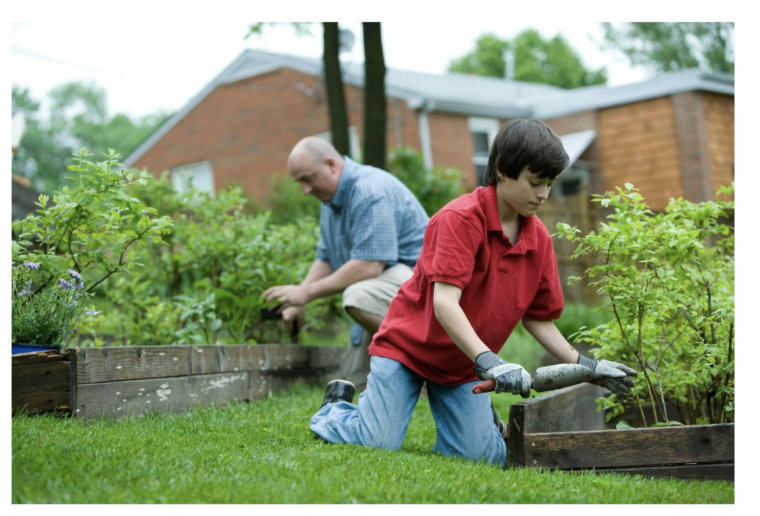Key Home Maintenance Strategies: 10 Essential Tasks for Homeowners

Owning a home is a significant investment and maintaining it properly is crucial for preserving its value and ensuring it remains a safe and comfortable place to live. Routine home maintenance can prevent small issues from escalating into costly repairs, saving homeowners time and money in the long run. This guide outlines essential maintenance tasks that every homeowner should perform to keep their property in top condition. By adhering to these strategies, you can protect your investment and enjoy your home worry-free for years to come.
- Clean Gutters and Downspouts
Gutters and downspouts are essential for channeling rainwater away from the foundation, walls, and landscaping of your home. When they become clogged with leaves, twigs, and debris, they can overflow, leading to water damage and potentially costly repairs. To prevent these issues, clean your gutters at least twice a year—once in the spring and once in the fall. Ensure that water flows freely through the gutters and downspouts and that all drainage areas are unblocked by debris.
- Regularly Inspect Your Roof
The roof is one of the most critical components of your home, acting as the first line of defense against weather elements. It’s essential to inspect your roof regularly for any signs of damage such as cracked, loose, or missing shingles and address these issues promptly.
Being proactive about roof maintenance also involves understanding potential costs associated with roof repairs. Knowing the typical roof repair cost can help you budget for routine maintenance or emergency repairs. Costs can vary depending on the extent of damage, materials needed, and labor charges.
Seasonal checks, especially after heavy storms, can help you catch potential problems early, preventing water damage and more extensive repairs later on. An undamaged, well-maintained roof also improves energy efficiency by keeping your home insulated against weather extremes.
- Maintain Heating and Cooling Systems
Your home’s heating and cooling system affects your comfort and your utility bills. To keep these systems running efficiently, schedule regular maintenance checks at least once a year. A professional can clean and inspect the unit, change filters, and ensure that all parts are in good working order. This not only extends the life of your HVAC system but also ensures it operates efficiently, keeping your energy costs down and preventing breakdowns during peak seasons.
- Test Smoke and Carbon Monoxide Detectors
Smoke detectors and carbon monoxide detectors are essential for home safety, alerting you to fires or dangerous carbon monoxide levels in your home. Test these devices regularly, ideally monthly, and replace batteries annually or as soon as you notice a low battery signal. This simple task can be lifesaving and should be a routine part of your home maintenance schedule.
- Seal Windows and Doors
Sealing gaps in windows and doors can significantly enhance your home’s energy efficiency by preventing drafts that lead to higher heating and cooling costs. Inspect seals and weatherstripping annually and replace them if they are worn out or damaged. This not only helps maintain comfortable indoor temperatures but also reduces the strain on your HVAC system, potentially extending its lifespan.
- Care for Your Lawn and Garden
Maintaining your lawn and garden not only boosts your home’s curb appeal but also contributes to its overall health. Regular mowing, weeding, and trimming can prevent overgrowth and pests, while proper fertilization and watering ensure your plants and grass are healthy. For regions with seasonal changes, make sure to adjust your care routine accordingly, such as aerating the lawn in the spring or mulching garden beds in the fall to protect against frost. Well-kept outdoor spaces can increase your property value and make your home more inviting.
- Inspect and Repair External Surfaces
Over time, your home’s exterior surfaces can suffer wear and tear from the elements. Regular inspections of your home’s siding, paint, foundation, and masonry can identify potential problems early. Look for cracks, decay, or moisture stains that might indicate bigger issues. Addressing these problems promptly, such as sealing cracks in the foundation or touching up peeling paint, can prevent more extensive damage and maintain the structural integrity of your home.
- Check Plumbing for Leaks
Water leaks can lead to significant damage if left unattended. Periodically check under sinks, around toilets, and near appliances for any signs of leaks. Look for damp cabinets, dripping pipes, or running toilets that need repairs. Fixing leaks not only prevents water damage but also saves water and reduces your utility bills. It’s a good idea to familiarize yourself with the main water shut-off valve location in case of a major leak.
- Update Lighting and Electrical Systems
Keeping your home’s electrical system in good condition is crucial for safety and functionality. Check your lighting fixtures and electrical outlets periodically for signs of wear or damage. Consider upgrading to energy-efficient LED lighting to reduce energy consumption. If you notice flickering lights, frequent circuit breaker trips, or any other irregularities, it’s important to call a professional electrician to inspect and possibly upgrade your electrical wiring, especially in older homes.
- Schedule Pest Control
Regular pest control is essential to prevent infestations that can damage your home and affect your health. Schedule inspections and treatments by a professional pest control service at least once a year. Be proactive by sealing possible entry points, such as cracks and gaps around doors and windows, and maintaining a clean and dry environment that is less attractive to pests.
Proactive Home Care
Proactively maintaining your home is essential for preserving its value and ensuring it remains a safe and comfortable place for you and your family. By following these essential maintenance tasks, homeowners can prevent minor issues from turning into major problems that can be costly to repair. Regular checks and upkeep on everything from the roof to the plumbing system not only protect your investment but also contribute to a higher quality of living.
